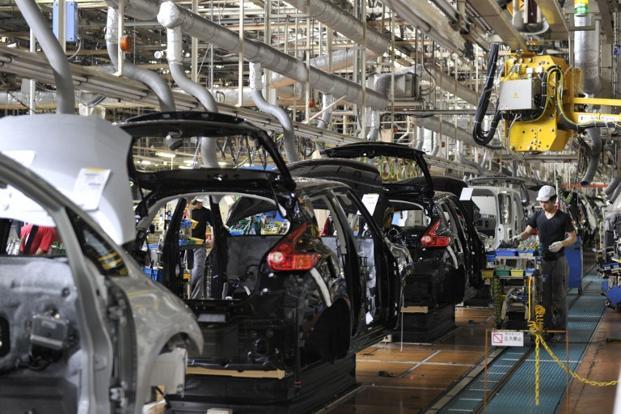
Japan’s economic growth slowed in the April-June quarter, official data showed Monday, raising questions about whether Tokyo’s bid to stoke growth was taking hold and if it would launch a series of tax hikes.
The fresh figures paint a mixed picture of firming consumer consumption but little evidence that firms are confident enough to start big spending on investment.
That will be a key consideration when Japan’s Prime Minister Shinzo Abe’s administration makes a decision on whether to usher in a series of sales tax hikes aimed at doubling the rate to 10 percent by 2015.
The increases are meant to generate crucial revenue to chop Japan’s eye-watering national debt — proportionately the worst among industrialised nations — but there are fears they could cut short Abe’s stimulus plan, dubbed “Abenomics”.
“Private investment was quite weak, which is one of the main factors behind the slower-than-expected growth,” Japan Research Institute analyst Hideki Matsumura told Agence France Presse after the results were published.
“But all in all, the growth was not so bad and it is expected to get better in the coming quarters thanks to the weak yen and other encouraging elements. This kind of growth is still strong enough to let the government introduce the planned tax hike, but it’s sensitive politically.
“A final decision will be based on politics, not the economy.”
On Monday, the Cabinet office said the world’s third-largest economy expanded by 0.6 percent from the previous quarter, slower than a revised 0.9 percent increase between January and March. The latest figures missed analyst expectations of 0.9 percent growth in the quarter.
The pace of expansion also slowed on an annualised basis with a 2.6 percent increase, from a revised 3.8 percent jump in the first quarter. Annualised data show how the economy would grow if the quarterly performance was stretched across the full year.
A weaker yen, which helps make exporters more competitive, and rising domestic demand helped to more than double profits at major Japanese firms in the April-June quarter, according to SMBC Nikko Securities.
But Abe’s plan is aimed at a broad economic recovery that drags Japan out of the deflation that has plagued its economy for years. Recent data pointed to a move in the right direction, but a two-percent inflation target set by the Bank of Japan earlier this year looks a long way off, analysts say.
The idea is to get consumers spending again. Falling prices have held back growth for years as households put off purchases in the hopes of getting them cheaper down the road, which in turn hurt producers and held back new hiring and investment. Wages have barely budged, although more recently some firms have announced salary hikes.
“Consumption has gotten better on spending on some luxury items, but things will really take off when a rise in disposable income starts a virtuous cycle of consumption,” Sei Sugimoto, head of investment planning at Mitsui Life Insurance, told Dow Jones Newswires.
“We’re not there yet.”
Source: Agencies












